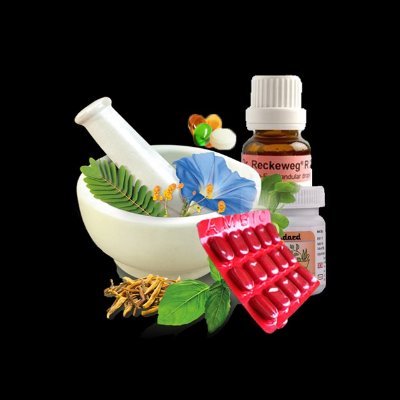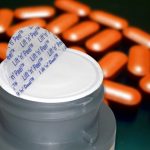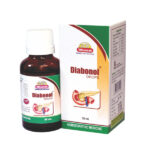What are the Dangers of Homeopathic Medicine?

What is Homeopathy?
The word Homeopathy comes from two Greek words “homoios” meaning similar and “pathos” meaning disease or suffering. It is based on the law of “Likes Cure Likes” and was first formulated by the renowned German physician Samuel Hahnemann in 1789. A minimal, homeopathic dose of a substance that would normally cause symptoms (such as the rash and itching from exposure to the poison ivy plant) in a healthy person, when given to a sick person exhibiting those symptoms, will effect a cure. This is why people can often take homeopathic Rhus toxicodendron (poison ivy plant) to cure their allergic reaction to poison ivy.
Homeopathic medicines are manufactured in accordance with the Homeopathic Pharmacopoeia of the United States (HPUS) and pharmaceutical Good Manufacturing Practices (GMP). With a history of experience spanning over 200 years, homeopathic medicines are used by millions of patients and recommended by health care professionals around the world to relieve many acute health conditions such as allergies, coughs, colds, flu, stress, muscle pain and teething. Under the care of a trained health care practitioner, homeopathic medicines are successfully used for both acute illnesses, as well as chronic conditions, like asthma, depression, hypertension, and arthritis.
According to the World Health Organization (WHO), homeopathy is the second largest medical system for primary health care in the world. It is prevalent and widely accepted in many parts of the world including Europe, where over 100 million people use it on a regular basis. In America, during the early 1900s, the most prestigious medical schools in this country were homeopathic.
Homeopathic products come from plants (such as red onion, arnica [mountain herb], poison ivy, belladonna [deadly nightshade], and stinging nettle), minerals (such as white arsenic), or animals (such as crushed whole bees). Homeopathic products are often made as sugar pellets to be placed under the tongue; they may also be in other forms, such as ointments, gels, drops, creams, and tablets. Treatments are “individualized” or tailored to each person—it’s common for different people with the same condition to receive different treatments. Homeopathy uses a different diagnostic system for assigning treatments to individuals and recognizes clinical patterns of signs and symptoms that are different from those of conventional medicine.
Use in the United States
According to the 2012 National Health Interview Survey, which included a comprehensive survey on the use of complementary health approaches by Americans, an estimated 5 million adults and 1 million children used homeopathy in the previous year. The 2012 survey also reported that although about 1.8 percent of children used homeopathy, only 0.2 percent of children went to a homeopathic practitioner. A 2016 analysis of data from this survey suggests that most adults who use homeopathic products self-prescribe them for colds and musculoskeletal pain.
In 2016, the U.S. Federal Trade Commission (FTC) announced it will hold efficacy and safety claims for over-the-counter homeopathic drugs to the same standard as those for other products making similar claims. It further stated that companies must have the competent and reliable scientific evidence the FTC requires for health-related claims, including claims that a product can treat specific conditions.
In December 2017, the U.S. Food and Drug Administration (FDA) proposed a new risk-based enforcement approach to homeopathic products. The proposed approach would call for more careful scrutiny of products with the greatest potential for risk, including:
- Those with reported safety concerns.
- Those that are not taken by mouth or rubbed on skin.
- Those for vulnerable populations.
- Those that do not meet legal standards for quality, strength, or purity.
- Those intended to be used for preventing or treating serious and/or life-threatening diseases and conditions.
What the Science Says About the Effectiveness of Homeopathy
A 2015 comprehensive assessment of evidence by the Australian government’s National Health and Medical Research Council concluded that there is no reliable evidence that homeopathy is effective for any health condition. However, it is important to note that studies included in the assessment of evidence were required to meet a number of rigorous criteria (e.g., having a sample size of more than 150 participants, the highest rating of methodological quality, and other measures). In total, 57 systematic reviews that contained 176 individual studies were included in this assessment. A new review of evidence by the Australian government is currently underway.
Homeopathy is a controversial topic. A number of the key concepts underlying the theory of homeopathy are not consistent with fundamental scientific concepts as we understand them. For example, homeopathic preparations can be so dilute that a substance considered to be the “active ingredient” becomes unmeasurable, which creates major challenges to the rigorous investigation of such products. However, recent research has begun to examine physical attributes of these preparations to determine if it will be possible to characterize them in the future.
No Evidence To Support Homeopathic Immunizations
Certain homeopathic products (called “nosodes” or “homeopathic immunizations”) have been promoted by some as substitutes for conventional immunizations, but the U.S. Centers for Disease Control and Prevention says there’s no credible scientific evidence to support such claims. The National Center for Complementary and Integrative Health (NCCIH) supports the Centers for Disease Control and Prevention’s recommendations for immunizations/vaccinations. To learn more about vaccines visit CDC Vaccination Guidance.
What the Science Says About Safety and Side Effects of Homeopathy
While many homeopathic products are highly diluted, some products sold or labeled as homeopathic may not be; they can contain substantial amounts of active ingredients, which may cause side effects or drug interactions. Negative health effects from homeopathic products of this type have been reported.
A 2012 systematic review of case reports and case series concluded that using certain homeopathic products (such as those containing heavy metals like mercury or iron that are not highly diluted) or replacing an effective conventional treatment with an ineffective homeopathic one can cause adverse effects, some of which may be serious.
Liquid homeopathic products may contain alcohol. The FDA allows higher levels of alcohol in these than in conventional drugs.
Homeopathic practitioners expect some of their patients to experience “homeopathic aggravation” (a temporary worsening of existing symptoms after taking a homeopathic prescription). Researchers have not found much evidence of this reaction in clinical studies; however, research on homeopathic aggravations is scarce. Always discuss changes in your symptoms with your health care provider.
The FDA has warned consumers about different products labeled as homeopathic. For example, in 2017, it alerted consumers that some homeopathic teething tablets had excessive amounts of the toxic substance belladonna; in 2015, it warned consumers not to rely on over-the-counter asthma products labeled as homeopathic, because they are not evaluated by the FDA for safety and effectiveness.
Do homeopathic medicines have any side effects?
Yes, but homeopathic medicines above 8x or 4C have a very low risk of side effects and no contraindications. The labeling of any lower attenuation products that might have concerns will provide appropriate warnings. Some homeopathic products are restricted to sale on a prescription basis to ensure they are used properly to obviate any problems.
They can be safely taken with other conventional medications and are sometimes recommended to complement other treatments.
However, it is important to tell your medical doctor if you decide to use homeopathic remedies. He or she should have full knowledge of your health to help you make wise decisions about where to purchase homeopathic dilutions and what homeopathic practitioner to see. Homeopathic remedies should not replace conventional treatments for serious health concerns.





